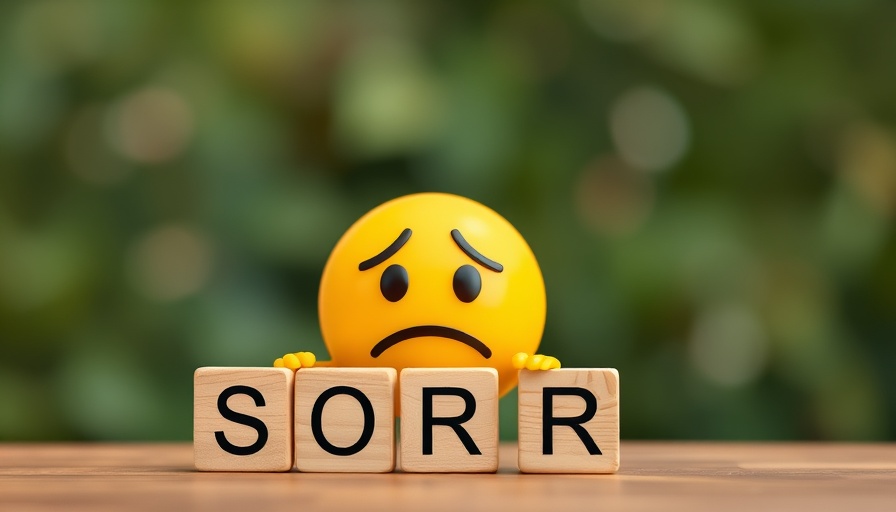
The Complexity of Apologizing: Understanding True Responsibility
In a world where social expectations often dictate behavior, the simple act of saying "I'm sorry" can become tainted by external pressure rather than authentic remorse. This tension is particularly pronounced in children, who may be compelled by adults to apologize even when they do not feel any guilt or wrongdoing. Such experiences can have lasting impacts on their emotional development and sense of self.
Guilt vs. Responsibility: The Distinction that Matters
When parents force children to apologize, they inadvertently teach them a twisted lesson about responsibility. Guilt that is imposed rather than felt can create a toxic sense of obligation. As highlighted in various therapeutic discussions, true remorse originates from personal reflection and recognition of one’s actions. When children are allowed to ponder the consequences of their behaviors genuinely, they develop a healthier relationship with accountability, one that empowers rather than confines.
Resentment: The Unseen Consequence of Imposed Guilt
Friedrich Nietzsche famously stated, "Nothing on earth consumes a man more quickly than the passion of resentment." This insight underscores how forced apologies can breed deep-seated bitterness. When children engage in apologies without feeling genuine sorrow, it doesn’t promote healing; instead, it can instill a feeling of inadequacy and indignation, causing resentment to fester over time.
Internal Guilt: A Pathway to Personal Growth
It is crucial to differentiate between internal and external guilt. Internal guilt, arising naturally from one's moral compass, can encourage personal growth and accountability by enabling an individual to reflect on their behavior. This self-generated remorse facilitates real change and ethical development. Supporting kids in reflecting on their actions and feelings leads to a more resilient mindset.
Strategies for Meaningful Apologies
For parents wishing to cultivate an environment where true apologies thrive, consider the following approaches:
- Encourage Reflection: Instead of immediately demanding an apology, ask children to reflect on the situation, promoting empathy towards those affected.
- Model Genuine Apologies: Show children what sincere remorse looks like by apologizing for your mistakes and demonstrating how to rectify them.
- Use Open Dialogue: Foster conversations surrounding mistakes to help children understand the implications of their actions without coercion.
The Bigger Picture: Emotional and Mental Health
Addressing the dynamics of apologies among children is part of a broader conversation about emotional intelligence and mental health. As parents in Denver navigate family life, understanding the implications of forced apologies can not only enhance their parenting strategy but also support their children in building a strong, healthy foundation for interpersonal relationships in the future. Mental health professionals often note that teaching kids how to recognize and respond to their feelings—especially surrounding guilt and shame—can prevent potential challenges as they grow into adulthood.
The Next Steps as Responsible Parents
As we strive to raise emotionally intelligent children, it is our responsibility to foster environments where true emotions are acknowledged and valued. Recognizing how forced guilt affects children may inspire parents to rethink their approach to accountability and interaction with their children.
In conclusion, embracing a healthier dialogue around apologies can not only cultivate empathy within our children but can also lead to their broader emotional well-being. By allowing them to own their feelings and actions, we prepare them for the complexities of relationships that they will encounter throughout life.
As Denver parents grapple with these concepts, it’s essential to reflect on how you approach apologies within your family structure. Are you ready to reshape your perspective on this crucial aspect of communication? Your approach could impact your child's emotional toolkit immensely.
 Add Row
Add Row  Add
Add 




Write A Comment